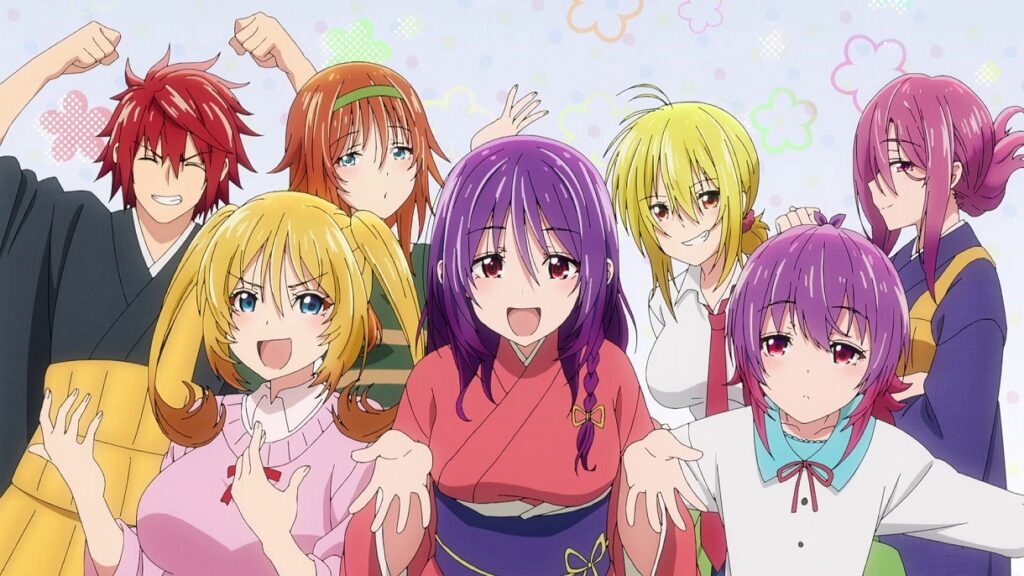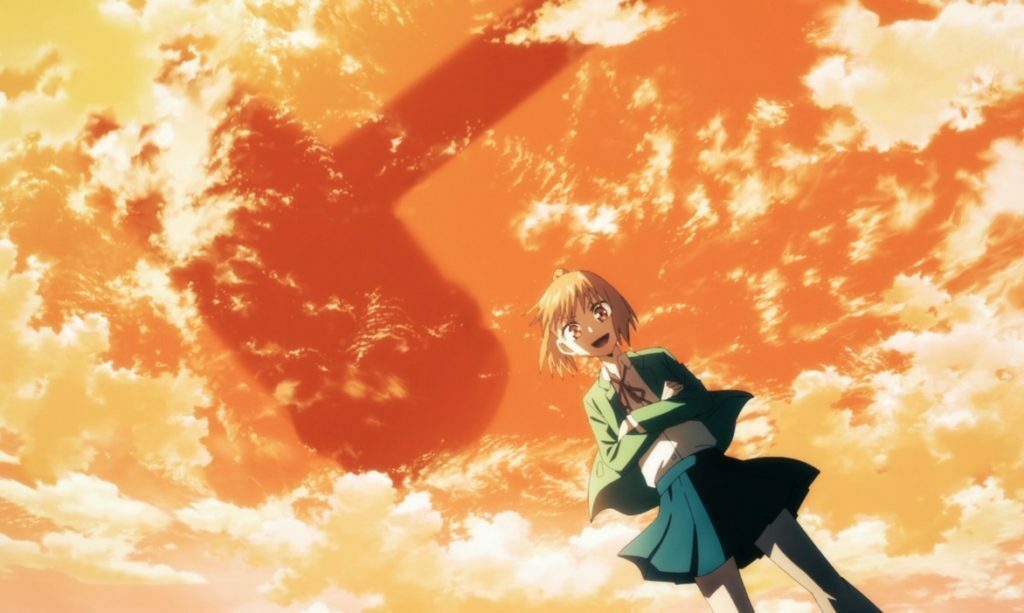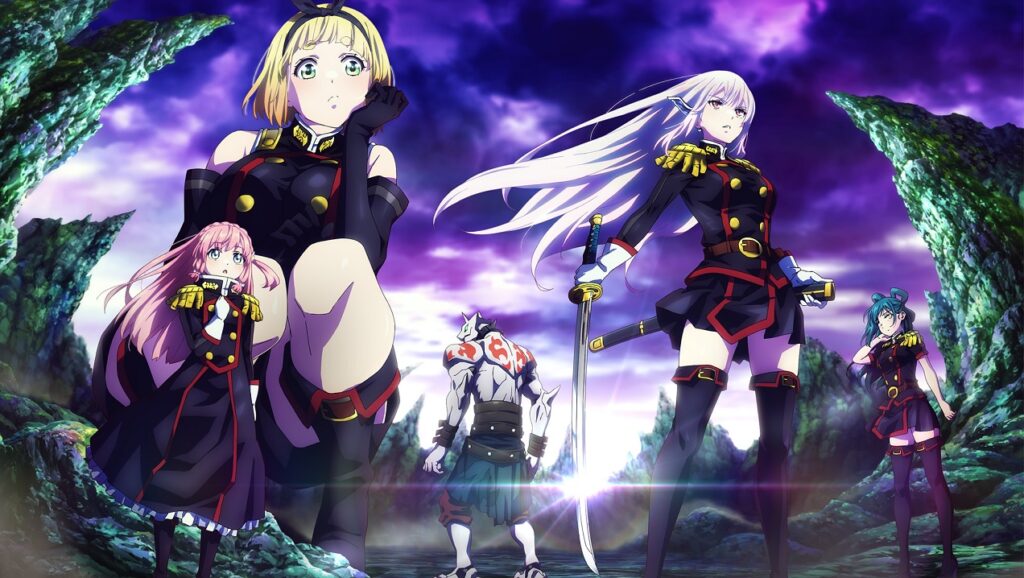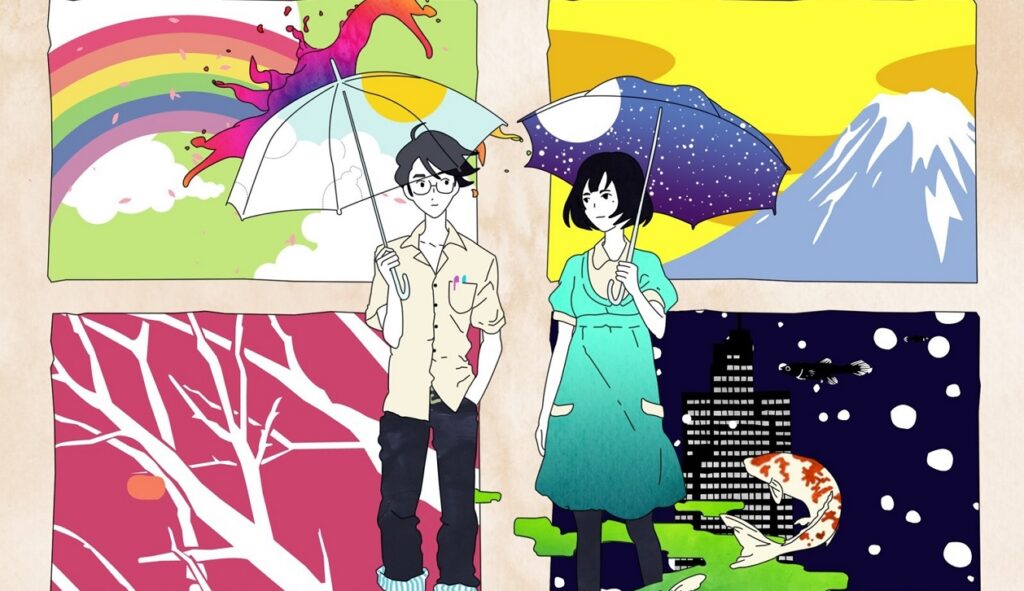After his father abandoned him to chase his lustful urges all around the world, Akemitsu Akegami is determined to control his overwhelming urges so as to not be a creep.
However, after a chance encounter with a mysterious girl leaves him filled with impure thoughts, he decides to become a Buddhist monk in order to tame his worldly desires.
Unfortunately for him, the temple he decides to become a monk at has since become a nunnery full of women. What’s more, the woman he had that chance encounter with is there training to become the head priestess in order to save the temple from shutting down.
Temple is an ecchi harem comedy like every other, but in an interesting new wrapper! If you are looking for more anime recommendations like Temple: No One Can Live on Loneliness, head on down below.
Anime Like Temple: No One Can Live on Loneliness
For Fans of Living With Ladies
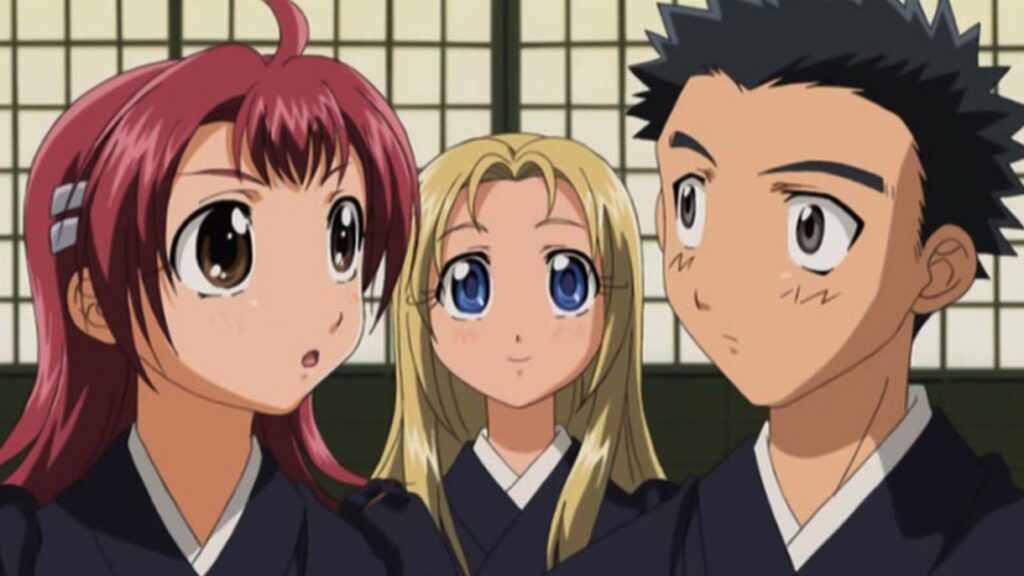
Ah My Buddha
As the grandson of a Saienji Priestess, Satonaka Ikkou is sent to the Saienji Buddhist Temple when he is 16 to begins his first year as a trainee.
While he is there to hone his spiritual powers, the fact that he is surrounded by beautiful priestesses-in-training proves all too distracting.
Both Temple and Ah My Buddha feature main characters that decide to live at or are forced to live at a temple. Once there, they discover that the temple is home to only women, but they are allowed to stay anyway.
While Akegami only wants to control his urges, Ah My Buddha does have a more in-depth plot about the main character living at the temple in order to train his spiritual powers. However, both series are essentially ecchi harem anime with the same setting.
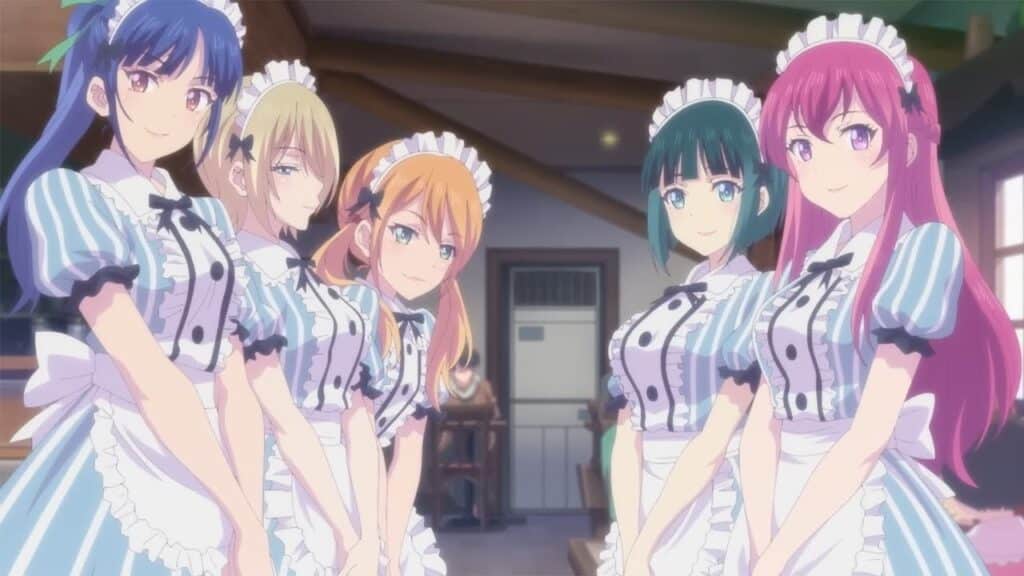
The Terrace Cafe and Its Goddesses
After his grandmother passed away, Hayato returned to the seaside cafe she had ran since he was a child, intent to sell it. However, after leaving for university, he didn’t realized that his grandmother had let five young women live on the property and work at the cafe as well.
In their desperation to keep their home, they convince Hayato to keep and re-open the cafe. However, between running a business and dealing with five unruly women, he is in for a difficult time.
Both Temple and The Terrace Cafe and Its Goddesses have a main character go to a place that was dear to one of their relatives. Once there, they discover that it is now home to only girls and is in danger of closing. They stay, they help, and they gain a harem.
The Terrace Cafe and Its Goddess has two crucial differences from Temple, however. It may be a harem, but it isn’t a particularly ecchi one. There are moments, but none quite as ecchi as any episode of Temple is. The Terrace Cafe and Its Goddesses also has less of a focus on comedy. The main character is less silly and the personalities of the girls are less wild in the house compared to Temple.
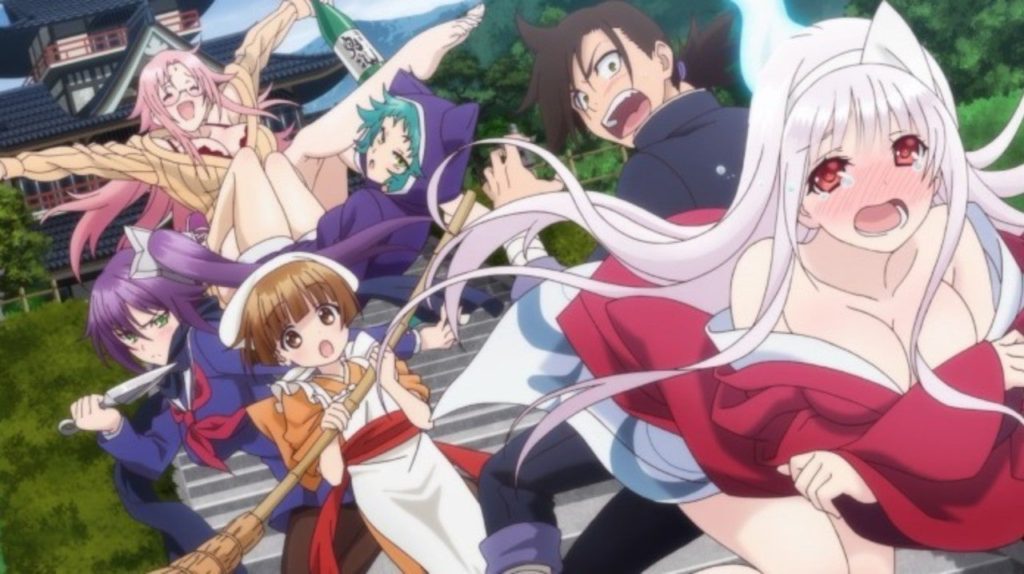
Yuuna and the Haunted Hot Springs
Yuragi-sou was once a hot springs inn, but is now a boarding house that only has a few residents.
Rumor has it that the boarding house is haunted, and this rumor has attracted a homeless psychic that is hoping to exorcise the ghost in order for an affordable place to stay.
However, he discovers that it is not a malicious ghost, but a ghost named Yuuna that all the other residents can see as well.
Both Temple and Yuuna and the Haunted Hot Springs are ecchi harem comedies that take place in something traditionally Japanese. Instead of a temple like in Temple, Yuuna and the Haunted Hot Springs takes place in a hot springs.
Both series feature more casual and perverted main characters who head to these places, hoping to live there, and discover a number of quirky female residents. The biggest difference is that Yuuna and the Haunted Hot Springs has that element of the supernatural.
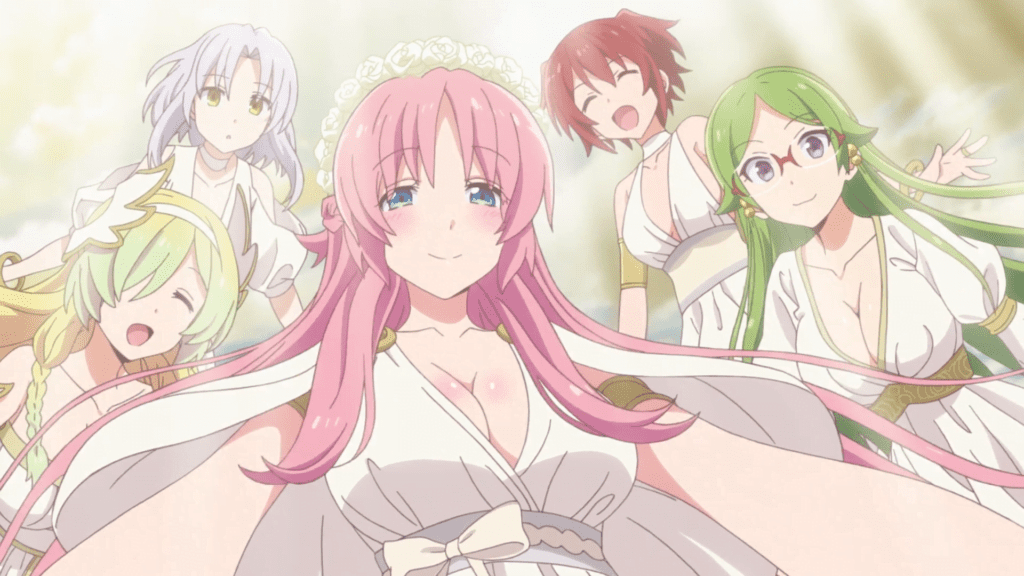
Mother of The Goddess’ Dormitory
After their home burns down and he is abandoned by his father, Koushi Nagumo wanders homeless until he collapses on the street. He is found by a woman named Mineru and taken to a female dormitory.
Koushi discovers that Mineru is the temporary manager there, and she invites him to be the permanent dorm mother to the problematic female residents.
While differing in many ways, both Temple and Mother of The Goddess’ Dormitory are similar in all the ways that count – as an ecchi harem comedy with busty ladies.
Unlike Temple, Mother of the Goddess’ Dormitory follows a 12-year-old main character who was left homeless and, not unlike Akegami, becomes the dorm caretaker after he is taken in by the residents of a all-girl college dorm.
From there, both series are about the main character solving problems, doing chores, and getting into all sorts of pretty graphically ecchi situations.
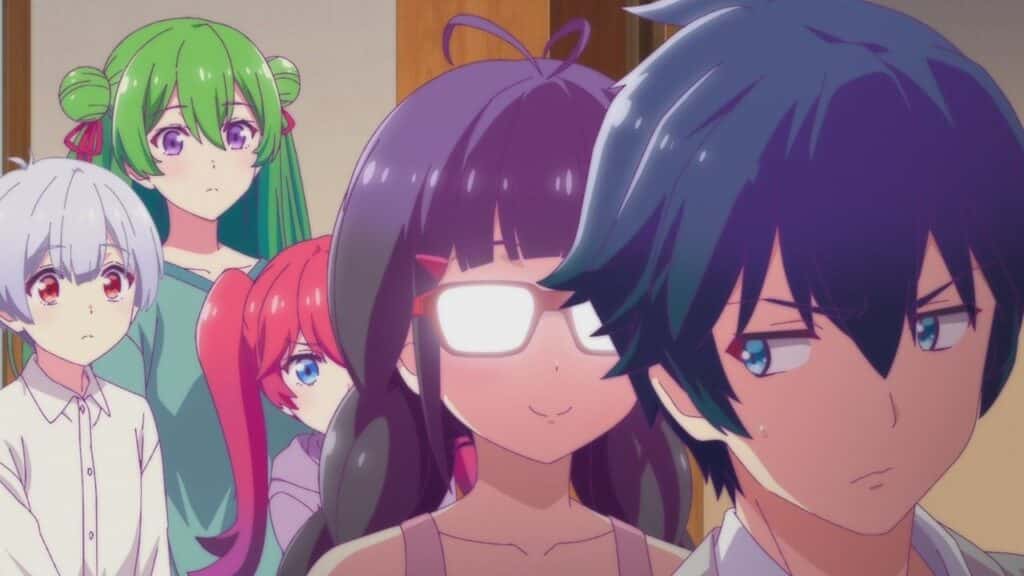
Love Flops
One normal day, high school student Asahi Kashiwagi wakes up and watches a fortune teller’s predictions on TV. On his way to school, as according to the predictions, he has a variety of accidentally lewd encounters with five different people.
After these five clandestine meetings, he discovers that all five of them are new members of his class. What’s more, their encounters have all sparked the embers of love between him and each one of them.
Now he needs to follow his own heart else his love life flop and fizzle out.
While Akegami’s dad may have run off, Love Flops features a distinctly better father who sets his son up to live with a whole harem of potential marriage partners while he is away.
While Love Flops is modern, if not slightly futuristic, both series feature male main characters who live with their harem and are constantly pulled into their ecchi shenanigans.
While both series really love their ecchi moments and sexual comedy, Love Flops does have a more serious main character when compared to Akegami and his silliness.
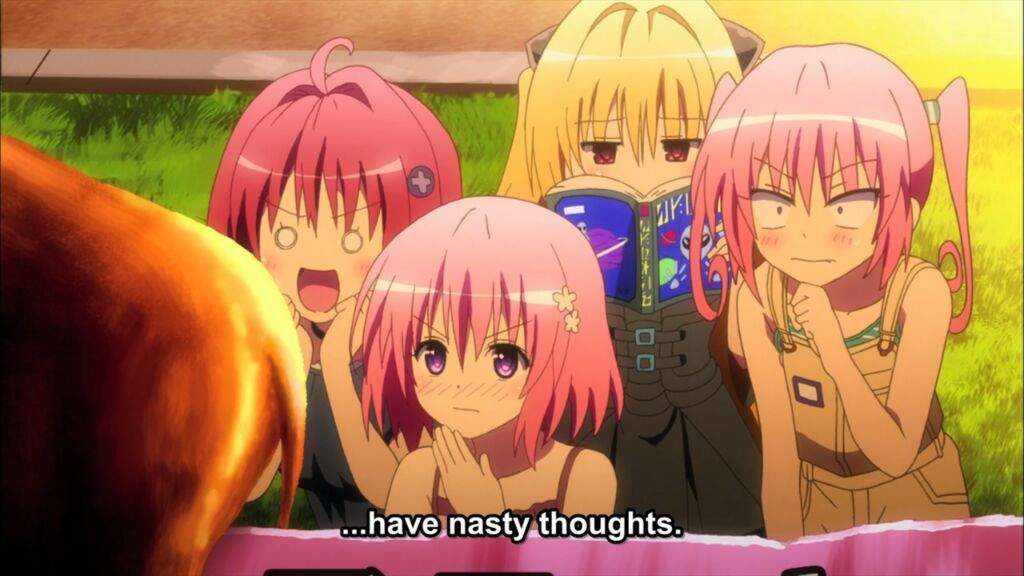
To Love-Ru
Timid Rito wants is to confess his love to a girl in class. However, things quickly become complicated when one night a naked girl comes crashing in on him while he is in the bath.
This girl, as it turns out, is an alien princess on the run and she wants to marry him to avoid a political marriage.
Thus begins Rito’s endless days of girl struggle.
What Temple is to nuns and shrine maidens, To Love-Ru is to aliens. They are both ecchi comedy anime, but with different themes to the ladies and setting.
While both Temple and To Love-Ru feature main characters surrounded by their harem, To Love-Ru is more of a rom-com than a harem anime, especially since it takes time for the harem to build up unlike Temple that has a harem immediately.
Furthermore, To Love-Ru is ecchi, but doesn’t get particularly graphic with it until To Love-Ru Darkness, the sequel series where things get very ecchi.
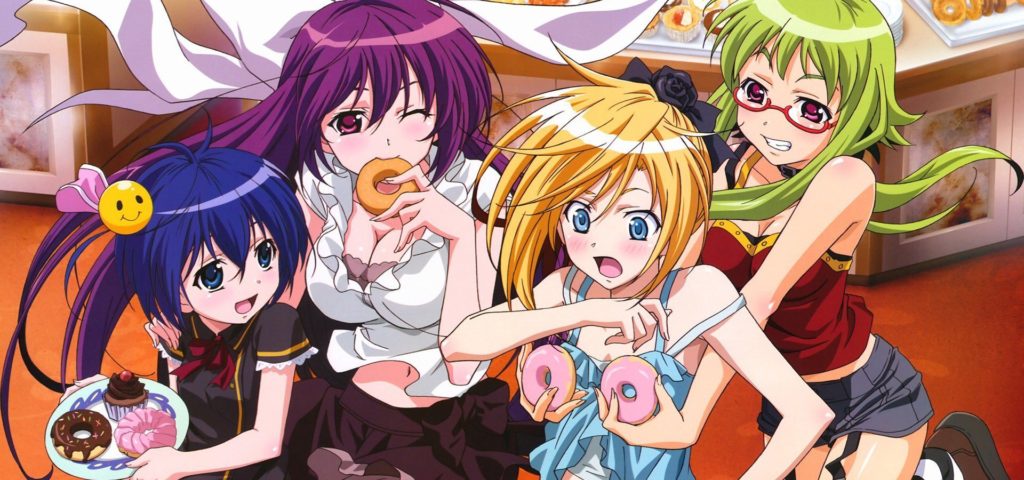
Samurai Harem
Spending his young life in the mountains training his sword style with his father, when Yoichi Karasuma is sent to train at a dojo in the city, he finds his social skills poorly honed.
Combined with his poor understanding of modern socialization, he has to navigate living with the Ikaruga sisters at the dojo.
Both series feature a main character who had been living alone suddenly moving into a place that has all ladies. Unlike the temple setting in Temple, Samurai Harem takes place in a dojo. Instead of the girls being priestesses, the girls in Samurai Harem are all swordswomen.
While both series enjoy their ecchi comedy, unlike Akegami in Temple, Yoichi is a serious guy who is serious about his sword training.

For Fans of Controlling The Horny
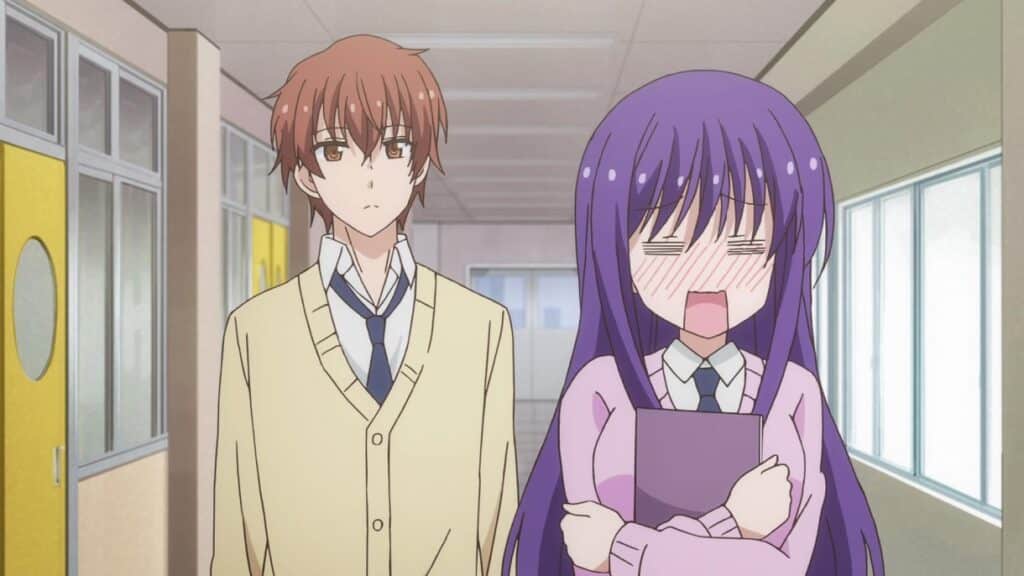
Ao-chan Can’t Study
Determined to study in order to escape the clutches of her erotic author father, Ao is thrown for a loop when Takumi confesses to her.
Unfortunately, knowing only what her father had taught her from his works, she can’t help but misconstrue his pure motivations.
While Ao-chan Can’t Study has a female main character, like Akegami, she is a girl shaped by the horniness of her parents. As her father is an erotic novel author, she has come to see sex everywhere and seeks to suppress it.
While both series feature main characters dealing with their constant horny urges, Temple is a harem series whereas Ao-chan Can’t Study is a rom-com with an emphasis on sexual comedy. While Temple has a clear main girl, but often doesn’t progress much, Ao-chan Can’t Study is a rom-com with romantic progression.
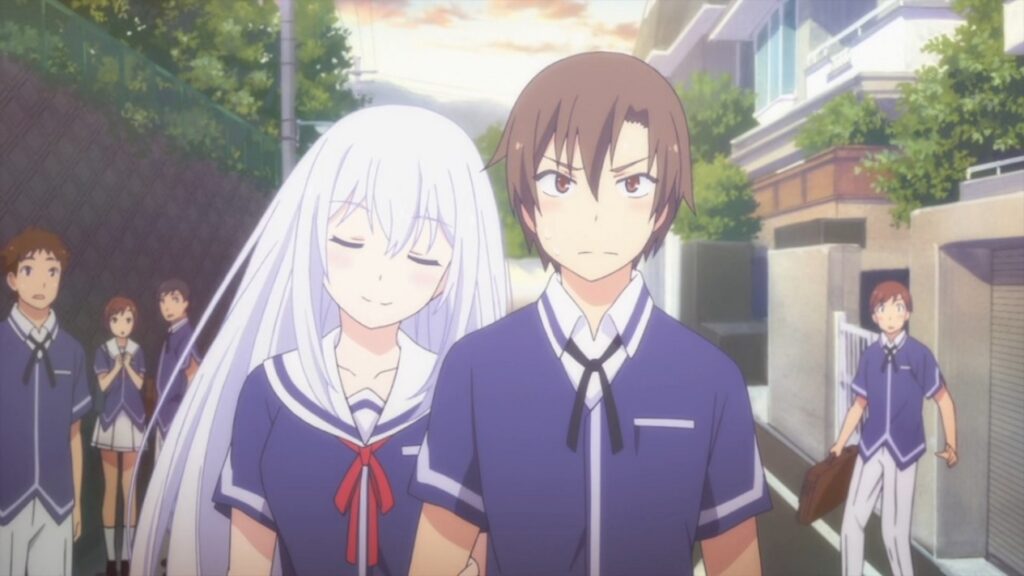
Oreshura
After being abandoned by his love-addled parents, Eita Kidou is a bit put off by romance. It also causes him to see through the love confession of one, Masuzu Natsukawa.
As it turns out, she just wanted a boyfriend to stop the daily love confessions. While he initially declines, she takes to blackmailing him to be her fake boyfriend.
While Temple is about a guy who is trying to control his urges after being abandoned by his father who chased his horniness, Oreshura is about a boy who hates love after his love-addled parents ran off and abandoned him.
Essentially, Oreshura is a story like Temple, but without the ecchi and the temple setting.
Both series have main characters trying to avoid the things that their parents ditched them for (love/lust), but of course they fail and end up with a harem. While Oreshura is still a harem with a main romance similar to Temple, it does lack the ecchi.
For Fans of Ecchi Comedy
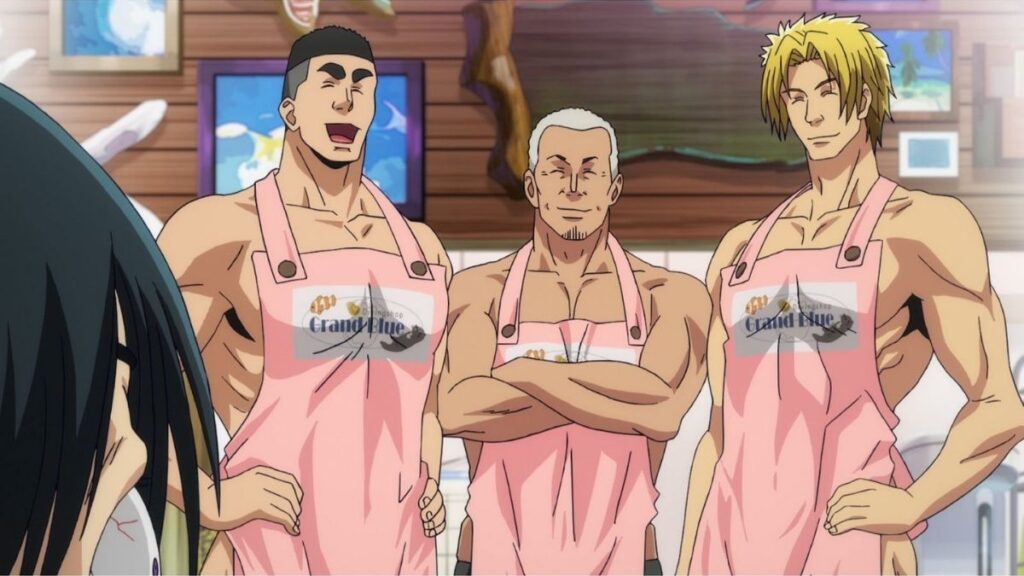
Grand Blue
Iori Kitahara is excited to travel to the seaside town of Izu for his first year of college. He moves into his uncle’s scuba shop, Grand Blue, but things don’t go according to plan.
Inside the shop is a bunch of naked and drunk upperclassman who get him drunk. After his cousin walks in, his college life starts to derail, but his work getting it back on track doesn’t go quite as planned either.
While Grand Blue is technically a sex comedy anime like Temple, it is often ecchi in the way you probably don’t want – naked muscular college men. However, what this series really has in common with Temple is the intensity and sex-driven nature in the comedy.
Both Temple and Grand Blue, while they have different settings, feature college-aged main characters who act like college-aged men. They love to drink, they have raging hormones, and they often end up in the strangest situations due to both.
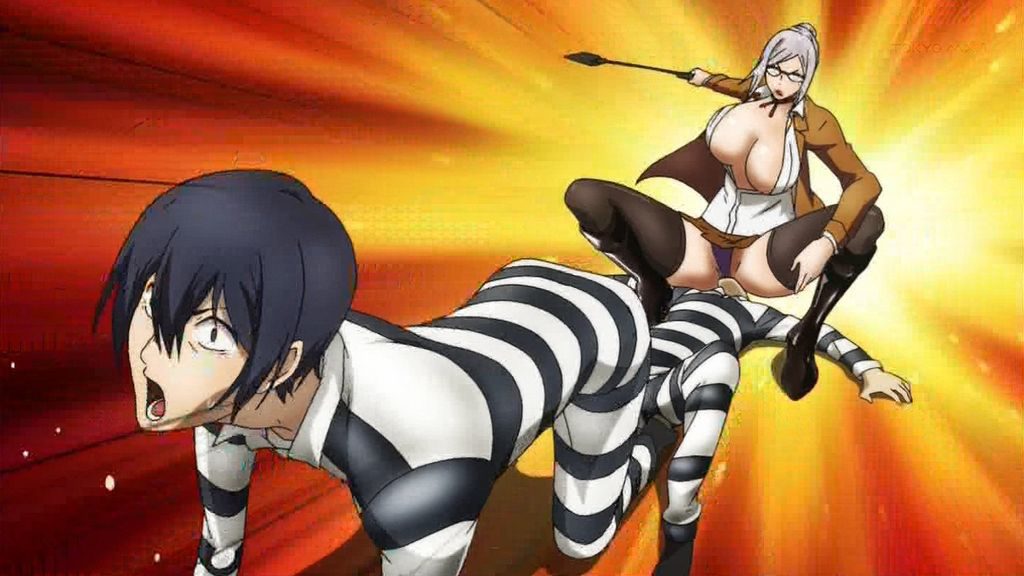
Prison School
The Hachimitsu Private Academy has always been a prestigious all-girls school that is prized for its high quality education and rigid discipline. However, they are now accepting boys as well as girls.
With a mere five boys in the schools, these boys think they are the luckiest men in the world. That is, until they get caught peeping and have their personal freedoms taken away in the brutal prison below the school.
Both Temple and Prison School feature young men who get punished or feel like they need to be punished for their urges.
Temple is the more tame option with Akegami simply seeking to suppress his lust in a temple only to be surrounded by beautiful women. Prison School takes a more extreme route of women often punishing a group of young men for their horniness.
Both series walk the fine line that all ecchi comedy must walk between being funny and being lewd. They manage to keep the balance well, though Prison School is much more extreme in both its jokes and its ecchi.
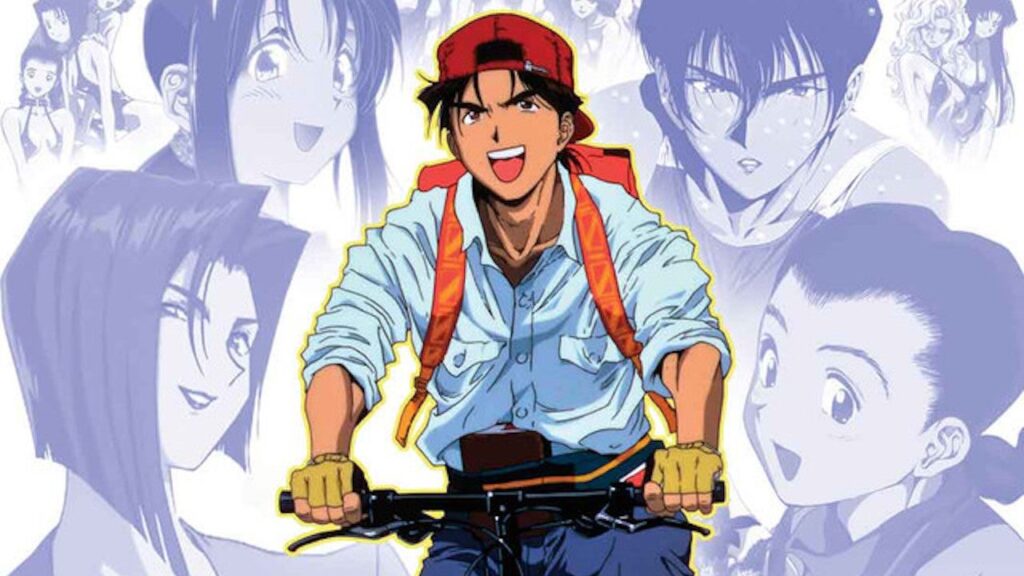
Golden Boy
Kintarou Ooe is a specialist in part-time work. On his handy bicycle, he travels around the country looking for work and trying to hold onto those jobs, no matter how strange they may be.
From these jobs, he learns education that can’t be taught in a classroom, including how to get to a woman’s heart.
If Akegami were to let his youthful desires and raging loins run wild, then Temple would have become a series much like Golden Boy.
Whereas Akegami went to a temple in order to become a monk and control his unbridled lust, Golden Boy features a man of a similar age who chases his lust up every skirt on his very ecchi adventures.
Both Temple and Golden Boy are excellent ecchi comedies, but often for different reasons. Temple for how how hard it is trying not to be horny and failing, and Golden Boy for how over-the-top horny it is.
Do you have more anime recommendations like Temple: No One Can Live on Loneliness? Let fans know in the comments section below.
